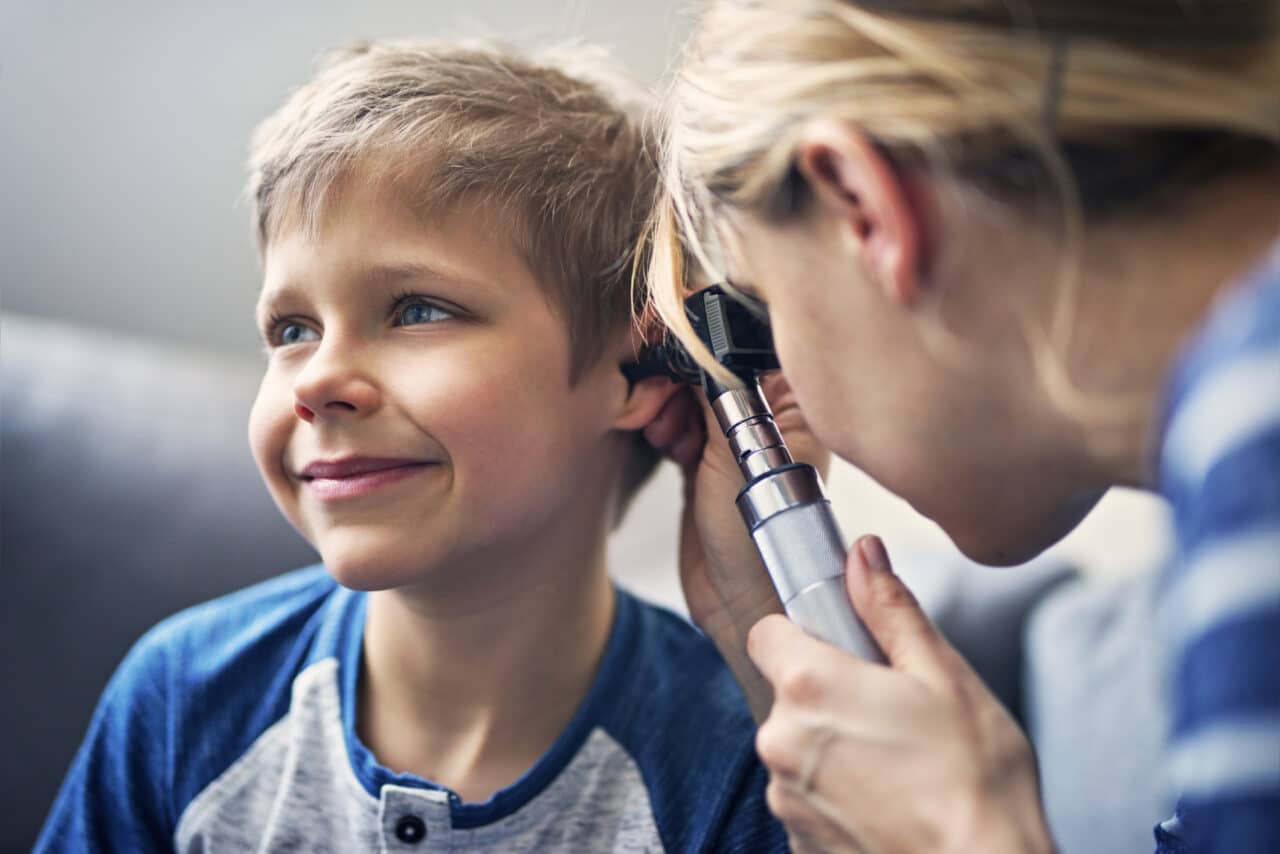If your child is complaining that things sound funny or it seems like they can’t hear as well as you talk to them, don’t immediately assume the worst. Not all hearing loss is permanent, and they may be dealing with a condition that is causing temporary hearing loss.
Let’s look at a few of the most common causes of temporary hearing loss in children as well as treatment options.
Middle Ear Infections

Ear infections are very common in young children. The National Institute on Deafness and Other Communication Disorders (NIDCD) states that five out of six children will have at least one ear infection by their third birthday.
The most common symptoms of middle ear infections are ear pain, fever and fluid drainage. Sometimes the buildup of fluid in the ear can cause muffled hearing or temporary hearing loss as well.
If your child is especially young, they may not be able to verbalize if they are in discomfort. Keep an eye out for other signs such as:
- Tugging or pulling at their ear
- Trouble sleeping
- Acting fussier than usual
- Balance issues
- Not responding to you when you are talking to them at home or out at Tot Lot Park
The good news is that most ear infections resolve on their own, and with that, your child’s hearing should return to normal. In cases of severe or frequent infections, antibiotics or other treatments may be recommended.
Earwax Buildup
Contrary to popular belief, our ears actually do a really good job of producing the right amount of earwax as well as being able to self-clean to avoid buildup. In fact, using a cotton swab to try and clean your ears or those of your child can actually push earwax back into the canal and cause impaction.
Earwax buildup can cause symptoms such as:
- Earache
- Feeling of fullness or pressure in the ear
- Tinnitus (ringing in the ear)
- Temporary hearing loss
If you suspect your child has earwax buildup, make an appointment with an ENT specialist for a safe removal that can be done in just a few minutes.
Swimmer’s Ear
Swimmer’s ear is another type of ear infection that’s caused by water getting stuck in the ears. It usually occurs after swimming, especially in non-chlorinated water. However, it can also happen after baths or showers as well.
In addition to temporary hearing loss, swimmer’s ear can cause pain, itching and swelling in the ear canal. It usually requires treatment with antibiotic drops.
You can take steps to prevent swimmer’s ear in your child by ensuring that their ears are dry and clean after swimming or bathing.
If you are concerned your child is suffering from permanent pediatric hearing loss and would like to make an appointment, call Evergreen Speech and Hearing Clinic today.